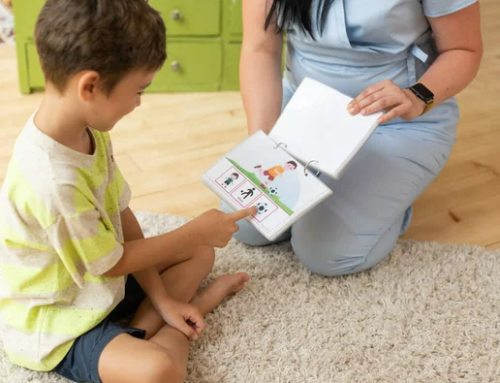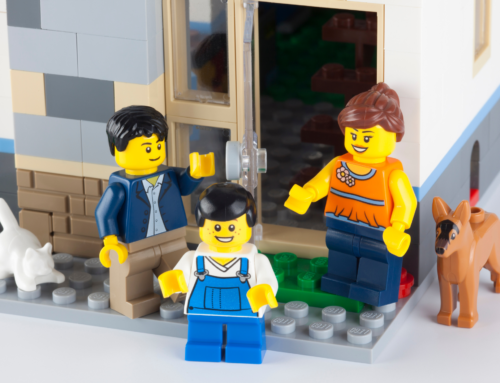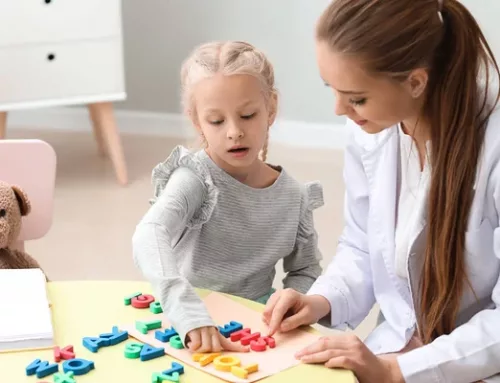Did you know that an estimated that one in five Australians suffer from a mental health disorder? That is a quite large 20% or approximately 4.8 million Australians that are struggling with mental illness. With R U OK? Day occurring recently and the theme being ‘Are they really ok’, this article explores mental health, the signs, what you can do about it to support others and some practical ways of starting that tricky conversation.
Last week was R U OK? Day, which encourages, inspires and empowers everyone to meaningfully connect with the people around them and start a conversation that could change or even save a life. It’s a great message that should be applied not just today but everyday!
The R U OK? Day theme for 2021 was: Are they really OK?. The theme comes in response to R U OK’s national survey which found that a whopping two-thirds of people (63%) are not confident they know the signs that someone might be struggling, while 41% hadn’t asked someone if they were OK because they weren’t sure of the signs. This is a stark reminder that mental Health can be everyone’s responsibility, not just those that are struggling as a result of it.
So what exactly is mental health? 
Mental Health is essentially our emotional, psychological, and social well-being. It can affect how we think, feel, and act. Our mental health influences how we relate and interact with others, manage stressful situations and make choices and decisions. Did you know that an estimated that one in five Australians suffer from a mental health disorder? That is a huge 20% or approximately 4.8 million Australians that are struggling with mental illness, with the most common being depression, anxiety and substance use disorder.
Mental health affects your mood, thinking and behaviour. There may be a diagnosis that goes along with this experience, such as depression anxiety, schizophrenia etc. Experiencing mental health difficulties can make work, school, relationships and just daily living much harder.
Sometimes it’s hard to recognise for ourselves when our Mental Health is not at its best and that we need support. Someone meaningfully asking ‘R UOK?’ can make a difference. In 2018, an average of around 8 deaths per day by suicide were recorded, which Is more than two and a half times that of the national road toll in the same year. With the expectation that the impact of the COVID-19 will further increase these figures it is more important than ever to connect with the ones around us. Start the conversation- it could save a life.
What causes mental health disorders?
There is no single cause for mental health disorders. They can be caused by a range of environmental and genetic factors. Experiencing mental heath illness is more common if you have a blood relative who also have a mental illness, and certain genes can increase your risk of developing mental health concerns. There are a range of environmental triggers that could also contribute such as alcohol and drugs, as well as adverse life experiences such as trauma or medical conditions.
What are the signs someone may be struggling with mental health problems?
So how can you tell if someone may be struggling with mental health concerns? There is no one size fits all when it comes to Mental Health. There is no easy checklist to tick off or answer to give. What we can do is be aware of changes in an individual. Some signs to be aware of are:
What are they saying?
Do they seem:
- Illogical or confused
- Withdrawn
- Excessively worried about the future
- Expressing hopelessness or worthlessness
- Believing they are a burden
- Overly Pessimistic
What are they doing?
- Isolating themselves
- Lost of interest in hobbies
- Disinterest in maintaining personal hygiene or appearance
- Unable to concentrate
- Behaving recklessly
- Changing their sleep patterns
- Poor diet
- Abusing alcohol or drugs
What is going on in their life?
- Relationship problems
- The loss of a job
- Recent death or suicide
- Ongoing exposure to bullying behaviour
- Physical illness
These things in isolation don’t necessarily mean that a person may be experiencing mental health problems, but they are flags that can indicate someone may need some support and give you confidence to ask R U OK?
Are they really ok? Ensuring an honest answer
There continues to be a lot of stigma associated with mental health difficulties. A recent study found just 25% of men said they would seek help from a mental health professional if they were experiencing personal or emotional problems. This stigma is also likely to interfere with receiving truthful answers when asking people R U OK?. Nobody should suffer in silence, so to ensure you receive open and honest responses here are the following tips:
Open Up first
The best way to encourage others to open up? Open up yourself! Sharing your vulnerabilities gives permission for the other person to share theirs.
Normalise the struggle
There’s nothing more normal than having a hard time, particularly during a pandemic! By normalising our mental health difficulties, we reduce the courage needed to initiate a discussion.
Show them you are trustworthy
Allow the person to feel safe when sharing secrets. When we’re told something in confidence do not share the information with anyone else. When we break people’s trust, we reduce the likelihood that they will share their vulnerabilities.
Watch your language
Our language choices have a powerful effect on how we view mental health and people living with mental health conditions. By eliminating words such as crazy, mad and insane from our vocabulary, we give people comfort that we won’t apply those same labels on them.
Show interest in the person’s life
A safe relationship takes consistent work, so put in the effort to show the person they are cared for. When we show an interest for the details of someone’s life, their likely to feel close to you and inclined to share their difficulties.
Don’t expect too much too soon
The sharing of personal information should be a gradual process. We need to show support and kindness in many instances before expecting someone to talk about their difficulties.
Develop your active listening skills
Active listening is when you set aside your defences and distractions, and truly take in what the other person is telling you. Being skilled in the art of active listening leaves people feeling heard, understood and validated. Thereby increasing the chances of being truthful in their discussions with you.
Timing
We shouldn’t put off the question of R U OK?, but neither should it be initiated at awkward or inappropriate times. Don’t bring up the question in the middle of a supermarket. Make sure it’s in a private place, and make sure you have enough time to chat.
What support options are available for them?
Starting a conversation with someone who you think may be struggling is always the best thing to do, particularly if it can be done in a caring way taking into account the tips above. When you have this conversation, it may result in you needing to encourage someone to seek support. In the event this happens, there are many wonderful support options available including their GP or a Mental Health care professional, or contacting one of the mental health services outlined below.
National Support Lines:
- Head to Health https://headtohealth.gov.au/
- Suicide Call Back Service: 1300 659 497
- Kids Helpline (up to 25 years): 1800 551 800
- Lifeline: 13 11 14
- Men’s Line Australia: 1300 789 978
- Beyond Blue: 1300 224 636
- Q-life LGBTQIA+: 1800 184 527
- Lifeline Text (6pm-12am): 0477 131 114
- GriefLine: 1300 845 745
If you would like more information on how to meaningfully connect with the people around you, the R U OK website has some great practical tips.

Brady Smith
Registered Psychologist, Beam Health

Megan Spencer
Clinical Psychologist, Beam Health









